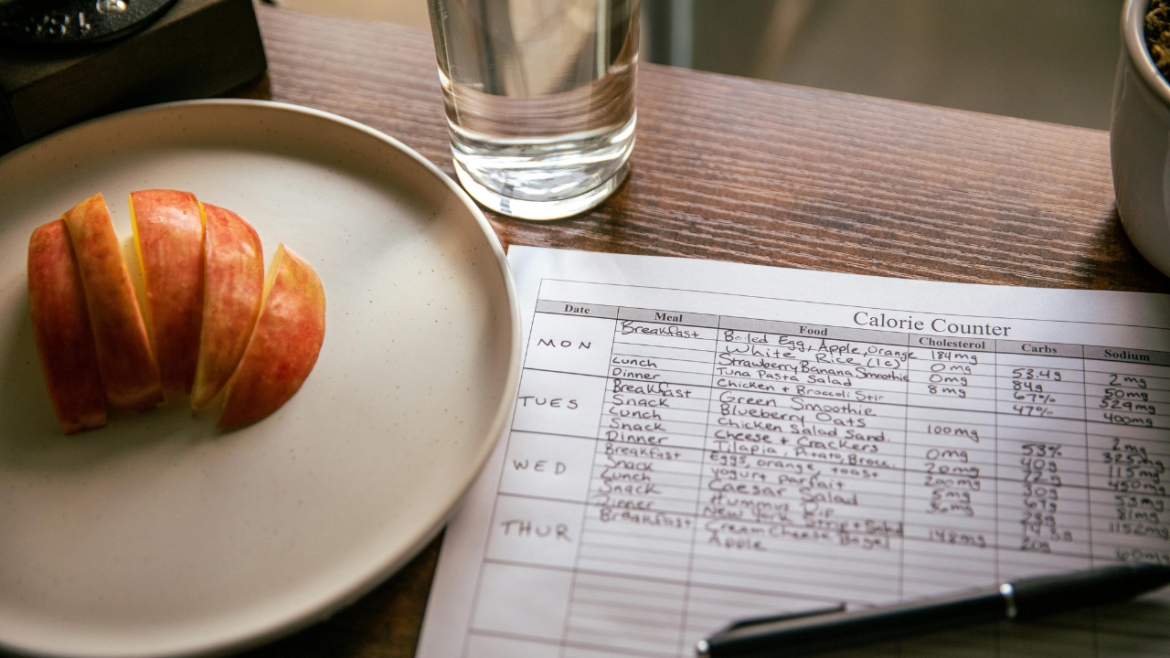When you start on your weight loss journey, one term comes up time and time again: calorie deficit.
We all know what this means: eat less than what you burn off during the day. But, being in a caloric deficit is a lot more than this. It’s nuanced and not all about counting calories and obsessing over how many meals you can have in a day.
Understanding some of the science being calorie deficits, and how to track your food in a healthy, balanced way, can help you achieve your fitness goals. Here’s an in-depth look at how you can create a calorie deficit, the science behind it, and how to maintain a healthy relationship with food.
The science behind calorie deficit
A calorie deficit occurs when you consume fewer calories than your body needs to maintain its current weight. This energy imbalance forces your body to tap into stored fat for fuel, leading to weight loss. To understand how this works, it’s essential to know about your Total Daily Energy Expenditure (TDEE).
What is TDEE?
Your TDEE is the total number of calories your body burns in a day, including:
- Basal Metabolic Rate (BMR): The number of calories your body needs to perform basic life-sustaining functions, such as breathing, circulating blood, and cell production, even when at rest.
- Thermic Effect of Food (TEF): The energy required to digest, absorb, and metabolize food.
- Physical activity: The calories burned through exercise and daily activities.
- Non-Exercise Activity Thermogenesis (NEAT): The energy expended for everything we do that isn’t sleeping, eating, or sports-like exercise, such as walking to work, typing, or fidgeting.
How to calculate a calorie deficit
To lose weight, you need to consume fewer calories than your TDEE. The size of your calorie deficit will determine how quickly you lose weight. A common recommendation is to aim for a deficit of 500 calories per day, which should result in about a pound of weight loss per week. However, this can vary depending on your starting point, goals, and individual metabolism.
It’s important to note that while a calorie deficit is essential for weight loss, an excessively large deficit can lead to muscle loss, nutrient deficiencies, and a slowed metabolism. Therefore, it’s crucial to find a balance that allows for steady, sustainable weight loss.
Tracking your food intake in a balanced way
While the science of a calorie deficit is straightforward, tracking your food intake can be tricky, especially if you want to avoid the pitfalls of obsessive calorie counting. Here’s how to track your intake in a way that promotes health and well-being:
Start with awareness, not numbers
Before you even start counting calories, spend a few days tracking what you eat without making any changes. This practice helps you become more aware of your eating habits, portion sizes, and the types of foods you’re consuming. It’s about understanding your current relationship with food.
Use a balanced tracking method
When you’re ready to start tracking calories, consider using an app like MyFitnessPal or Lose It! These apps not only count calories but also provide insights into the nutritional quality of your diet. They can show you how much protein, fat, and carbohydrates you’re consuming, as well as vitamins and minerals.
However, don’t feel pressured to track every single calorie if it’s causing stress or anxiety. Instead, use the app to get a general idea of your intake and focus on the quality of your food.
Prioritize nutrient-dense foods
Instead of focusing solely on calories, prioritize foods that are rich in nutrients. These include whole grains, lean proteins, healthy fats, and a variety of fruits and vegetables. Nutrient-dense foods will not only help you stay within your calorie limit but also ensure that your body gets the vitamins and minerals it needs.
Practice mindful eating
Mindful eating is about being present during your meals and listening to your body’s hunger and fullness cues. It’s easy to overeat when you’re distracted, so try to eat without screens and focus on the taste, texture, and satisfaction of your food. This practice can help you eat less without feeling deprived.
Don’t fear flexibility
It’s important to have flexibility in your diet. If you’re too rigid, you may find yourself craving the very foods you’re trying to avoid. Allow yourself occasional treats and indulgences without guilt—what matters is the overall pattern of your eating habits, not individual meals.
The pitfalls of calorie counting and disordered eating
While tracking food intake can be a helpful tool, it’s crucial to avoid letting it become an unhealthy obsession. For some, calorie counting can lead to a preoccupation with food, restrictive eating patterns, and even disordered eating. Here’s how to maintain a healthy balance:
Focus on health, not just weight loss
Weight loss is often the goal of a calorie deficit, but it shouldn’t come at the expense of your health. Instead of focusing solely on the scale, consider other markers of health, such as increased energy, better sleep, improved fitness, and a more balanced mood.
Recognize the signs of disordered eating
If you find yourself obsessing over calories, feeling guilty about food choices, or constantly thinking about food, it may be time to reassess your approach. It’s essential to prioritize mental and emotional health as much as physical health. Consider speaking with a registered dietitian or therapist if you’re struggling with these issues.
ALSO SEE: 6 FOODS THAT CAN BOOST YOUR SEROTONIN LEVELS
*Disclaimer: This article serves as an informative guide. Please seek the advice of a medical and healthcare professional if you or a loved one is struggling with their relationship with food and exercise.
Article was originally written by Jade McGee for Woman&Home Magazine.

